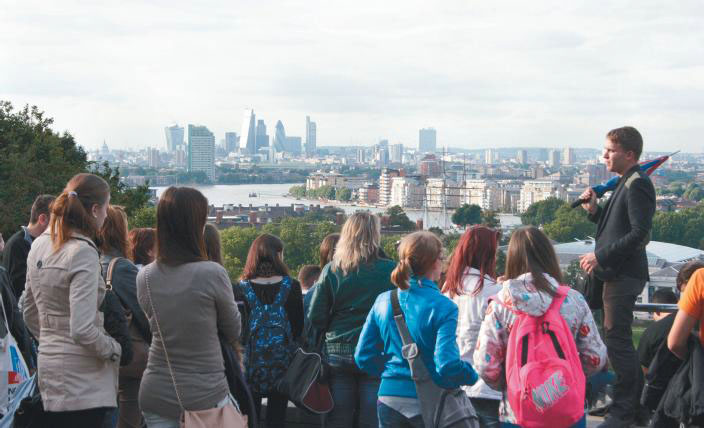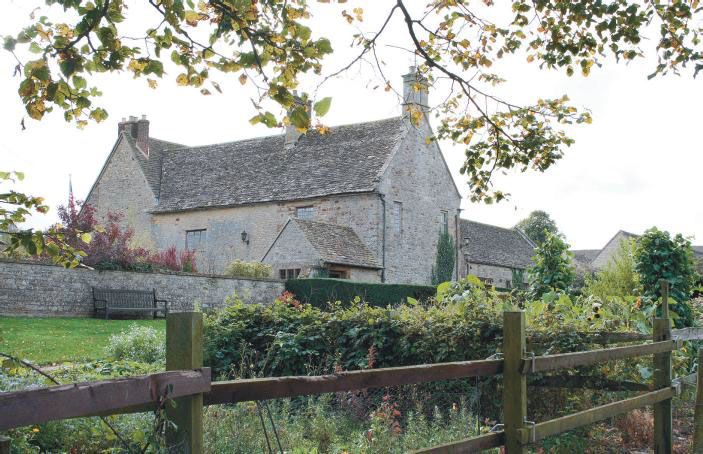
IT HARDLY SEEMS POSSIBLE that nigh 10 years have passed since I took the editor’s desk here at British Heritage. Among the first reflections I had on realizing the milepost was that a good many British Heritage readers have been along for the whole decade. That’s actually pretty unusual for magazines. If you’ve been reading this column for a while, you’re most likely a long-term subscriber in any event. So, I thought you might be curious: Who are British Heritage readers?
First, they are readers. British Heritage is written and edited for readers. We tell actual stories, rather than simply profile pretty destinations. Among the many gratifying comments that come wafting into [email protected], I am most chuffed to see, “I read the magazine cover-to-cover.” With that goal, the first question I ask of any potential feature is: Will this be of compelling interest to the great majority of our readers?
We are the envy of other staffs here at Weider History; gorgeous covers and colorful pictures are never a problem for us with beautiful Britain as a subject. They are chosen to illustrate our stories, however, not to decorate coffee tables.
[caption id="OfCabbagesandKings_img2" align="aligncenter" width="704"]

DANA HUNTLEY
BRITISH HERITAGE READERS are also active, heritage travelers. You will find British Heritage in the travel section on the Barnes & Noble newsstand, and rightly so. But the destination is Great Britain, and folks don’t travel to our sceptered isle for winter sunshine, palm-lined beaches or theme parks. Our interests are more broadly cultural: stately homes and gardens, castles and cathedrals, battlefields of old and country pubs, church history, theater and music, sites industrial or literary, maritime swagger and the accouterments of monarchy—just for instance.
In fact, our readers tend to have omnivorous interests. Many times it is a single interest or connection that first leads folks to England, Scotland and Wales—a special love for gardening, family roots or church history (or MG cars or Doctor Who), for instance. Then, following that interest in our green and pleasant land with its 2,000 years of history and the palpable roots of so much that is American culture, Britain seeps into our imagination. Put one way, we feel that “special relationship” politicians only blather about. And our interests in England, Scotland and Wales become much broader (and more fun on so many levels). In short, people turn into Anglophiles, and the fortunate ones discover British Heritage. We might not make a special trip to the southern edge to Dartmoor to visit the Yelverton Paperweight Centre, but we would be delighted to drop in when passing by.
In fact, more than a third of British Heritage subscribers travel to Britain in any given year. It is always terrific to get emails from readers who’ve used the magazine in planning their adventures in Britain, because we aim to be of practical help. An established travel writer queried me recently about doing a story of a cruise through the Great Glen aboard Scotland’s only 5-star luxury barge. We declined, though I told her I might be interested if she were walking the Great Glen. Only a very small percentage of people (and readers) could ever afford those elegant, high-end experiences. They are certainly fun to read about, but there are other sources for dreamers and armchair travelers.
FINALLY, BRITISH HERITAGE readers are savvy. Sandra Lawrence has joked to me a couple of times that she reads “Dateline” to find out what’s going on in Britain. Sandra kindly exaggerates, I’m sure. Of course, some 15 percent of our readers are British expats who live on this side of the Atlantic. It’s nice to keep up with home.
No, “Dateline,” my own occasional essays and our features on contemporary life hardly make British Heritage a news magazine. Our readers care about what is happening in the UK, though, and so do we. We are not a history magazine whose only interest is the past.
In fact, a theme I have often rung is the effective way in which Britain and its people live comfortably with their past, incorporating the archives, artifacts, buildings and landscapes of its history into life in the 21st century world.
[caption id="OfCabbagesandKings_img3" align="aligncenter" width="703"]

DANA HUNTLEY

ISTOCK
SO, WHAT IS GOING on in Britain these days? Public debate in Britain for months has been dominated by the Europe Union. It’s just not popular. An increasingly annoyed British public perceive the EU as an unwarranted intrusion into the UK’s sovereignty—costing them billions, telling them what to do and harboring a fair amount of corruption. Tory politicians have been dangling the carrot of a referendum on the EU out in front of the electorate for years, but neither David Cameron nor his Cabinet really has the stomach for a fight. And frankly, it is the Politicians of all parties and their financial backers whose vested interests lie in maintaining Britain’s membership in the EU.
Among the most serious grievances has been legal immigration. Housing, employment and social services in the UK are overwhelmed by massive and virtually unrestricted in-migration from Eastern European countries, most notably from Poland, Romania and Bulgaria. These are economic migrants, drawn to Britain by the economic incentives of prospective employment as well as the benefits of the NHS and Britain’s extensive domestic welfare programs—all of which are open to new arrivals by EU covenants. The UK has been subject to the huge expense of absorbing this net migration of millions over the last few years; both its social services and its cultural identity have been challenged.
Meantime, the Scottish independence referendum coming up in September gets a lot of press. The difficulties and negative consequences of Scottish independence keep piling up, and making the matter look more and more like a romantic pipe dream rather than a feasible option for Scotland’s future. Of course, what goes around comes around. Now a petition has been launched with the Scottish Parliament for the Shetlands, Orkneys and Western Islands to have a referendum on whether or not they want to stay a part of Scotland.
Ironically, that petition was announced at Holyrood the same day the Government decided to give Westminster MPs an extra week off, putatively because they had so little to do. As Basil Fawlty would shriek in frustration, “That’s typical… typical.” As Charlie Brown would say, “Good grief.”





Comments